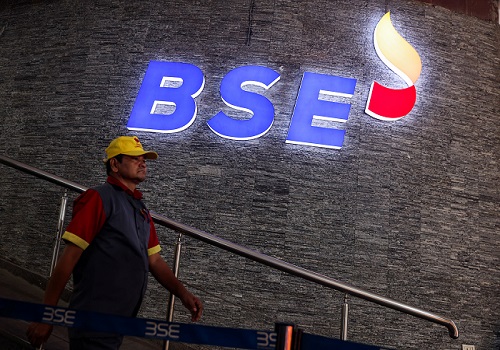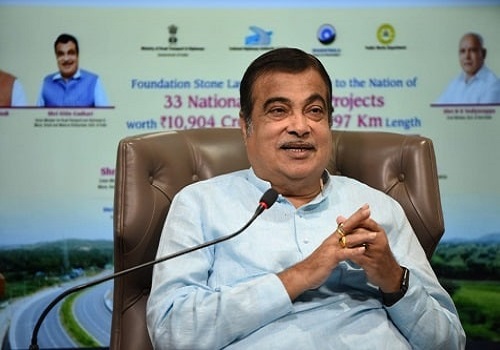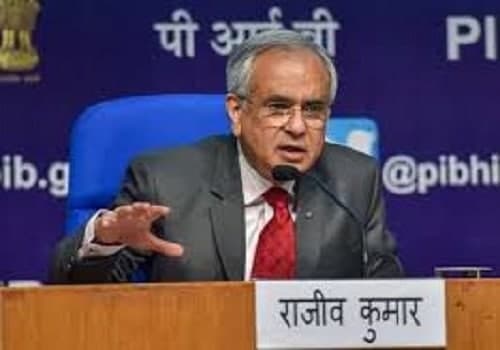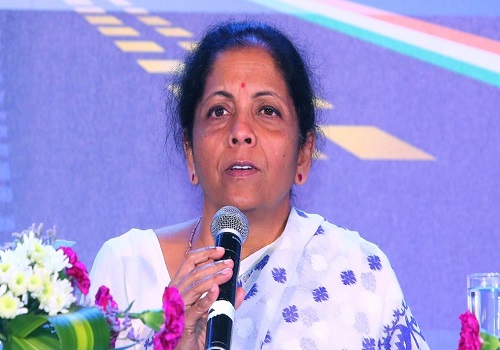How Karza Technologies makes due diligence and onboarding simpler for banks & NBFCs

Follow us Now on Telegram ! Get daily 10 - 12 important updates on Business, Finance and Investment. Join our Telegram Channel
One of the key pillars of growth for the Indian economy are small and medium-sized businesses, which generate roughly 30 percent of the countrys GDP and provide jobs to over 110 million people.
As MSMEs increase their digital footprint and become more visible to banks and lenders, a precondition to get their fair share of access to credit is the availability of credible financial information around them.
IANS spoke to the co-founders of Karza Technologies -- Alok Kumar, Gaurav Samdaria and Omkar Shirhatti -- on how they are empowering financial institutions with integrated Cloud-based solutions to make informed and intelligent lending decisions.
Excerpts from the interview below:
Q: How did you adapt to the growing needs of your clients and what were the key strategic pillars on which you built your digital strategy over the last two years?
A: Our vision was to digitize the lending journey. In addition to digitizing every step of the lending process, we also had to solve certain legacy problems that persisted in the industry and had been in existence for decades.
The diversity and demography of the Indian population have created a snag in the entire ecosystem with quirks in names and addresses, poor quality photographs in ID proofs, etc. In addition to onboarding, risk and fraud checks and due diligence, the prevailing problem is the sheer number of data points that you must look at, compile, and incorporate into one place, then apply logic to it all.
To solve this problem, it required us to develop unseen automation frameworks, train algorithms, and models that offer human-level accuracy for Indian names, addresses, and photos when we try to match them. Our competition was not artificial intelligence, our aim was to reach human-level accuracy and we have achieved that.
Additionally, to make the vision a reality we had to build the most comprehensive data lake and add the intelligence layer, which allowed us to pull and integrate data from thousands of different sources at once, entitling for search and real-time analysis.
While the need for digital solutions for a seamless onboarding experience for customers was always present, the post-Covid era magnified the need for digital onboarding solutions more than ever and we stepped up to take on the wide-scale transformation.
We wanted to ensure that through our solutions FIs have the comfort that they were interacting with the right individual virtually, the onboarding via Video KYC became risk proof and reliable and the process of due diligence could be completed at the click of a button rather than skimming manually through numerous physical checks.
Here are three deep-tech induced solutions that Karza has introduced in the realm of digital onboarding and diligence that transformed the way legacy systems worked in the BFSI sector in these covid times:
Video KYC: Traditionally, Video KYC involves an agent who remotely carries out KYC verification over a video call. While a lot of peers provide these solutions, we wanted to make things unique and easier for our clients. We created a solution that was fully RBI-compliant in terms of infrastructure and processes and also enables end-to-end automation in onboarding.
Liveness Check: Ensuring liveness in that whether one is dealing with an actual person and not a pre-recorded video or a photograph is essential for onboarding. We have been able to obtain enhanced accuracy here by training specialized classifiers using Deep Tree Networks. Our Face Detection is further enhanced with our augmentation techniques to handle rotated faces and Face Attribute Model, which is the second line of defense against difficult cases.
OCR During VKYC Process: Karza's OCR solution is well-positioned to train models quickly and offers good accuracy even for poor quality images. Thus, when the customer shows documents on the video, our OCR APIs enable extraction of data in real-time.
During the call, when the agent asks a series of questions and the customer answers, the cognitive processes run in the background to compute a score and populate the screen in case of a red flag, which makes the agent's job super easy and quick. While the agent can continue to interact with the customer, the onboarding process is completed using this range of cognitive services.
We are now a true end-to-end straight through processing (STP) provider for a BFSI. Our end to end onboarding automation journey comprises of Cognitive (Liveness, Identity Similarity) + Video based Solutions like VideoKYC and VideoPD + Robotic Process Automation ==> End-to-End True Straight Through Processing even for cases where numerous other solutions will require a human intervention for edge cases.
KScan: For lenders to make a well-informed decision it is important to gain a deep understanding of the parties involved while taking decisions related to onboarding, underwriting, GTM optimization, risk assessment, and more.
KScan leverages machine learning technology to stitch together profiles of over 25 million businesses and 800 million individuals from multiple reliable sources, makes it available on a single platform and delivers search results in a few milliseconds, that's unparalleled! The best part is that it applies business intelligence on top of data and enables firms to recognize patterns in business, potential delinquencies etc.
KLookup: What is harder -- acquiring a customer or trying to get in touch with an acquired customer with zero contactability? Used by lenders and insurers post bureau scrubs, KLookup allows you to reconnect with your customers by identifying incremental contact details through alternate data. Klookup starts a graph-technology powered recursive search through public and Karza proprietary records to enrich incremental data points that boost contactability.
Q: Given a pick up in the credit cycle and the abating NPA issues, have you changed (eased) your models to assess risk profiles of customers?
A: We are underwriting enablers and we do not directly build custom underwriting models. We make the process of building underwriting models much easier and more economical for our clients. Karza has introduced a scalable and cost-effective approach to cumulatively extract all the relevant data points and apply a layer of intelligence on top of it to power an underwriting model.
We understand that it is important for underwriters to have access to all the data in a structured manner and historically all the data is highly unstructured and scattered across different sources in multiple formats, so we sort that out for underwriters.
Along with structured data formats we also provide a lot of cross-woven insights based on our intelligence to give powerful insights and also enable them to extract data pertaining to an individual or entity from hundreds of alternate data sources. Basically, we do all the heavy lifting in terms of multiple computations, data crunching, parsing different kinds of documents, scanned images etc.
Apart from providing one of the most comprehensive insights to assess counter-party risks in a structured format at one place, to this date we also have KGST, KITR, Kbanking.
All these solutions power the underwriting process by highlighting the financial nitty-gritties of an individual or an entity. Piggybacking upon our comprehensive data lake, these solutions also bring a plethora of additional intelligence by incorporating insights around the related parties.
We strongly believe, even before an underwriting process is initiated there are fraud and risk checks, eligibility criteria that needs to be assessed pro-actively.
We support that process with KDiscover, it is a risk scoring platform for digital on-boardings that negates the need for the customer to ever visit a branch of the bank to submit pertinent documents manually, and conduct validation of data in less than a minute.
Q: Karza is RBI-compliant in terms of infrastructure and processes that enable end-to-end automation in onboarding. What are some of the measures policymakers can take to further strengthen this ecosystem?
A: While building RPA technology, the integral challenge we face is cumulating data from different unstructured data sources. While developing our cognitive solutions we had to invest a lot to bring out the structured elements from data. If we can have a centralized or a structured data pool or an official data APIs that can be provided to us then we can further reduce the operational costs drastically.
The focus can be on further strengthening the cloud security norms, and to seal-proof the methods in which a FI can verify if the service provider doing all the fraud, risk and KYC checks and enabling operational efficiency for them is the actual original equipment manufacturers (OEMs).
And if the service providers are subcontracting the service then adequate diligence on sub-contractors is very much the need of the hour.
Q: Tell us more about KScan, which provides banks and financial institutions with a wealth of reliable intelligence data making it easier for them to provide credit and other financial products to MSMEs?
A: KScan is the most comprehensive Digital Due Diligence platform, a singular source of truth, that facilitates credible intelligence about businesses and individuals aiding better financial decisioning.
It is important to gain a deep understanding of the parties involved while making decisions related to onboarding, underwriting, GTM optimization, risk assessment, and more. Kscan gives a comprehensive view of demographics, business, negativities, management, ownership structure and financials in one easy to understand report generated at the click of a button.
Integrating more than 900 disparate sources, Kscan compiles intelligence on more than 25 million businesses and more than 800 million individuals. Processing over 2 million records each hour, Kscan is built on a state-of-the-art Data Engineering Pipeline equipped with latest Big Data Technologies and proprietary AI Algorithms to stitch together intelligence, identify fraudulent patterns and deliver results in milliseconds to our consumers.
We started by understanding and automating each activity of a financial institution, one API at a time. Today, 200+ APIs, 900+ sources and 850 Million+ records later, Kscan is a culmination of all the blocks built and researched over the past 6 years, that thoroughly automates and delivers credible intelligence across every function of a Financial Institution.
All achieved with >92%+ funded by Client Revenues with Rs 0.5 million in marketing costs! KScan has been successful in averting frauds worth $400 million.
Q: What has cloud technology enabled Karza to do better?
A: We have been able to deploy our deep tech solutions seamlessly at a massive scale by leveraging AWS. With aggressive go-to-market timelines and rush towards coping up with RBI circular around Video KYC, having Kinesis managed WebRTC service was nothing less than a boon
Karza has also immensely benefited from AWS Serverless frameworks like API Gateway and Lambdas. Not only do these AWS services help us in achieving continuous scale at run time but their compliance to stern security standards also help us in sailing through compliance and information security teams of the highly regulated BFSI sector.
Our goal is to achieve operational efficiency in terms of infrastructure security and slowly progressing towards a serverless offering. We were one of the first ones when such services were launched in India. We were very keen on the automation of infrastructure management and information security and have achieved many breakthroughs in that space as of today.
Firstly, we could provide for no single point of failure and scale-at-the-go within the very first quarter of our development
Secondly, we were able to achieve ISO 27001 without any designated Infra ops, or Information security personnel within a year itself and could pass the security and compliance checklist from dozens of leading NBFCs, insurance companies, banks etc. within a year of development lifespan itself.





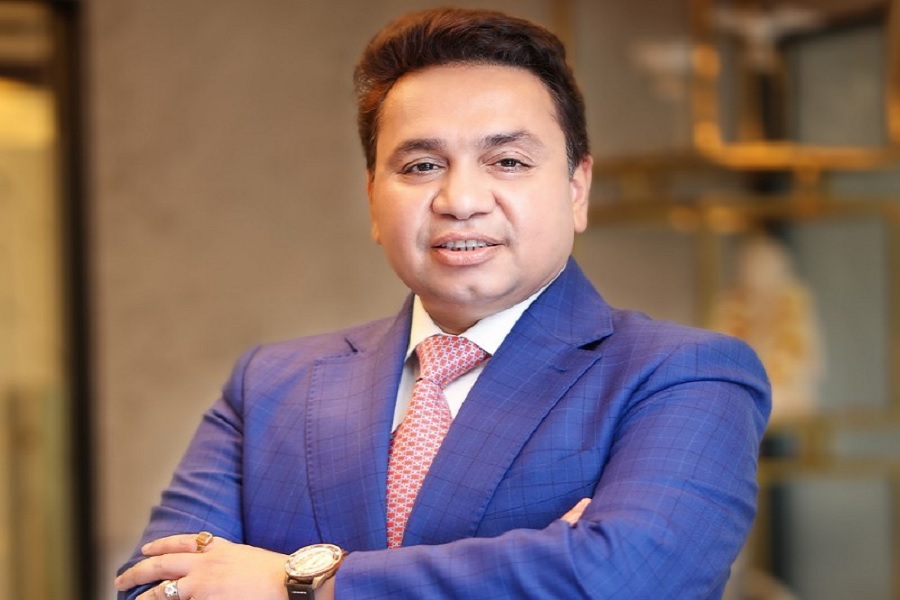


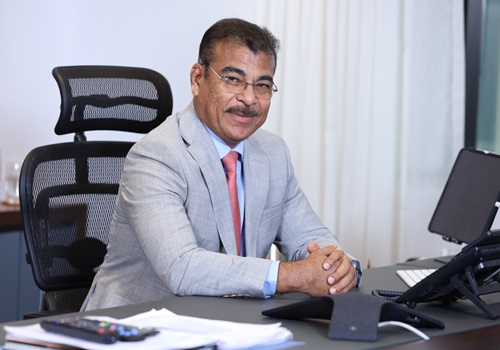
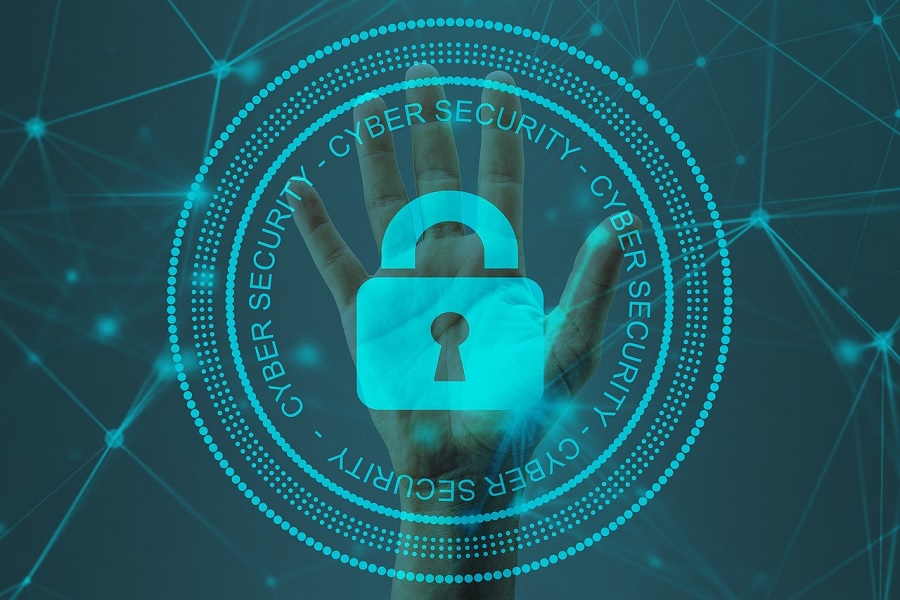
Tag News

Monthly Debt Market Update, September 2023: CareEdge Ratings



More News

Slovenia's Q3 GDP up 5% Y-o-Y


 320-x-100_uti_gold.jpg" alt="Advertisement">
320-x-100_uti_gold.jpg" alt="Advertisement">

